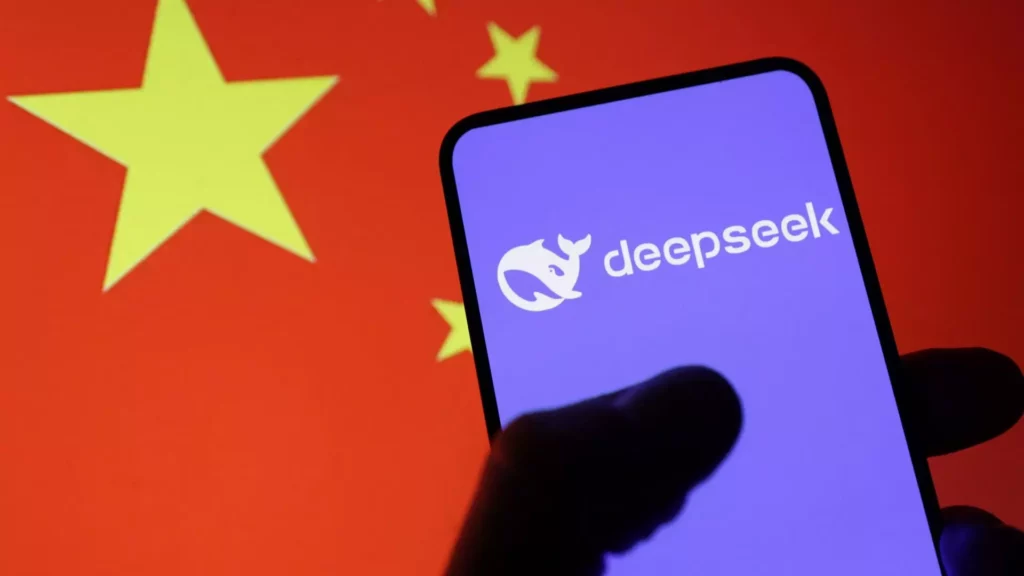In an epoch defined by technological breakthroughs, few phenomena have drawn as much attention as China’s DeepSeek. With astonishing speed, this AI startup has catapulted itself into the global tech conversation. Microsoft CEO Satya Nadella, OpenAI’s Sam Altman, and Apple’s Tim Cook have all weighed in on its implications, underscoring the pervasive unease rippling through the American tech landscape. This startling rise highlights not only China’s innovation but also the vulnerabilities in the U.S. tech sector, primarily concern over lagging competitiveness in an arena that many believe will define the future.
The financial and technological accomplishments of DeepSeek have been remarkable, as its R1 model reportedly cost a mere $6 million to design—a stark contrast to the exorbitant expenditures of U.S. counterparts. This has sent billowing shockwaves across the industry, evident in the 17% plummet of shares for chip giants Nvidia and Broadcom, which collectively observed an evaporation of $800 billion in market capitalization. Such dramatic figures highlight not just the success of DeepSeek, but also the trepidation about what that success portends for American supremacy in AI.
Faced with this shift, the American tech luminaries project a veneer of confidence; however, the underlying fears are palpable. Tim Cook’s vague reassurances about innovation fostering efficiency ring hollow in light of clear market reactions. His assertion that “innovation that drives efficiency is a good thing” feels somewhat defeatist against the backdrop of persistent speculation on whether this new competition will dictate pricing models and revenue streams moving forward.
Moreover, Mark Zuckerberg, in his remarks about DeepSeek, took a measured economic view, asserting that its early success doesn’t alter the larger calculus of investment and infrastructure. While it’s commendable to pursue caution, such remarks echo a worrying trend of underestimating adversarial competition. Can the American tech behemoths afford to wait and see when their primary competitor is in a full-throttle sprint towards innovation?
The broader implications extend far beyond corporate balance sheets; they touch upon national ambition and policy direction. During Donald Trump’s second term, there’s been a clear mandate for domestic investment in AI infrastructure, punctuated by his Stargate initiative, aiming to rally colossal investments from U.S. industry leaders. The circumstance presents a strong call to action, backing assertions that the U.S. indeed needs to rally against this encroaching competition.
This complicated desire to assert a tech strategy pales against the cohesive effort suggested by Palantir’s Alex Karp, advocating for a concerted “all-country effort.” Karp’s recognition that technology can harbor dangers resonates in our current climate where ethical dilemmas surrounding AI expand in parallel with its capabilities. Innovations should serve society, not disrupt it. However, the tech titans seem to be sidestepping this conversation, focusing instead on survival in an unforgiving competitive sphere.
Amidst the tumult, LinkedIn co-founder Reid Hoffman suggests that there’s no reason to panic. His positive yet reckless optimism—that the competitive landscape is merely shifting rather than dire—reflects a quintessentially American ethos. This approach—downplaying the stakes while pushing for progress—might work for some, but many AI experts would argue that we are not just witnessing an evolution; we are bearing witness to a revolution, and the battles for market share can destabilize entire economies.
OpenAI’s Altman calls the R1 model a “wake-up call,” pushing for a rapid evolution in a sector where computing model excellence is paramount. The emphasis on adaptability is essential, as complacency will not only further embolden competition; it may put the very identity of American tech at risk. The urgency of the moment cannot be overstated. Focusing solely on what has worked in the past will likely spell disaster against an adversary so agile.
The prevailing narrative is one of stark reality: the dominance of American technology is under siege, challenged by efficient and cost-effective innovations emerging from China. Industry titans need to recognize this shifting landscape for what it is: a high-stakes race demanding immediate and insightful responses.
As they navigate this turbulent terrain, it is imperative to recognize that the future of AI is not just about cost and revenue; it is also about establishing ethical standards and promoting responsible innovation. The implications aren’t isolated to U.S. competitiveness but could redefine global ethical frameworks surrounding AI. The race is on, and those who fall behind may not just lose market share—they risk losing the very narrative of innovation that has long defined American exceptionalism.

